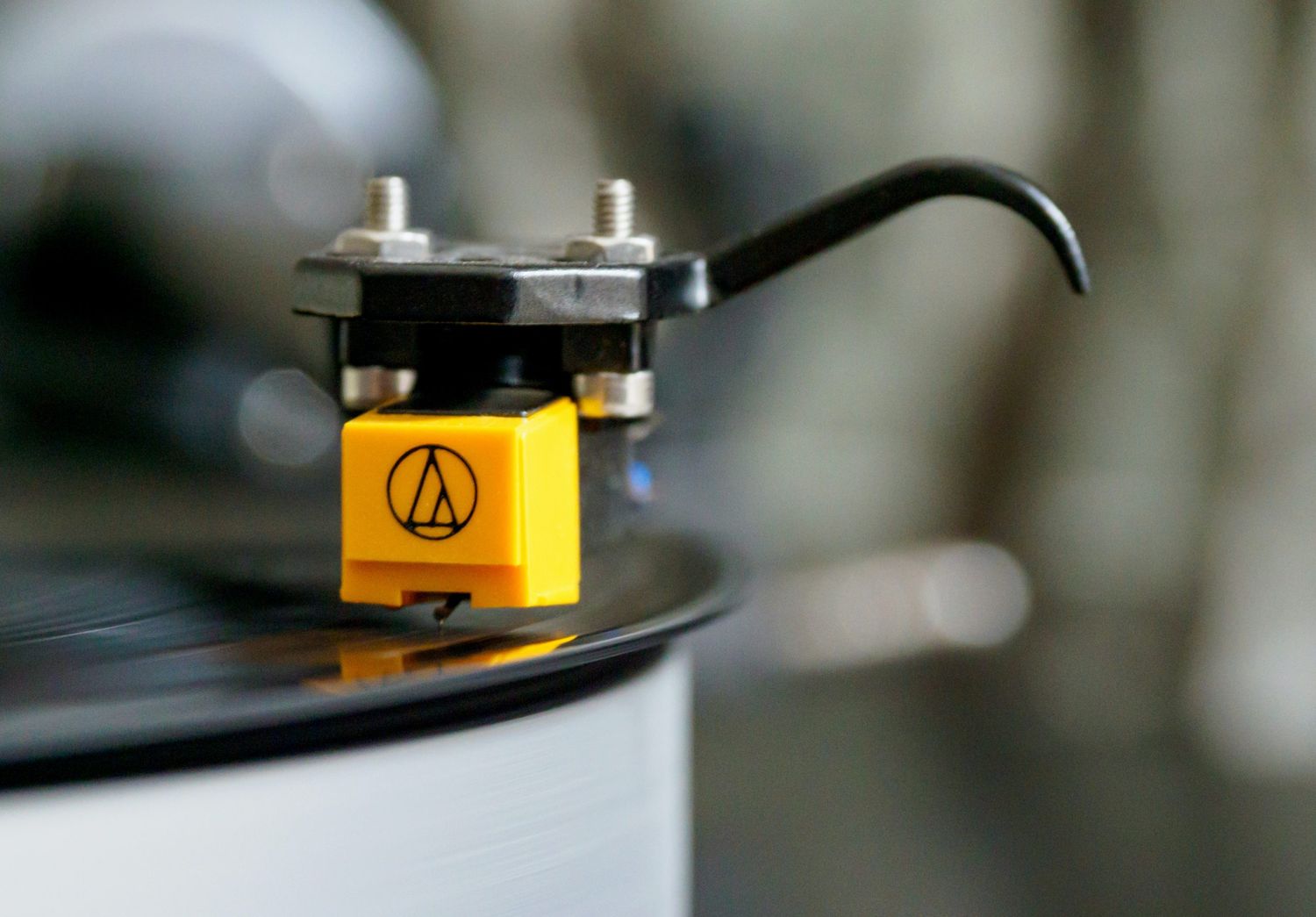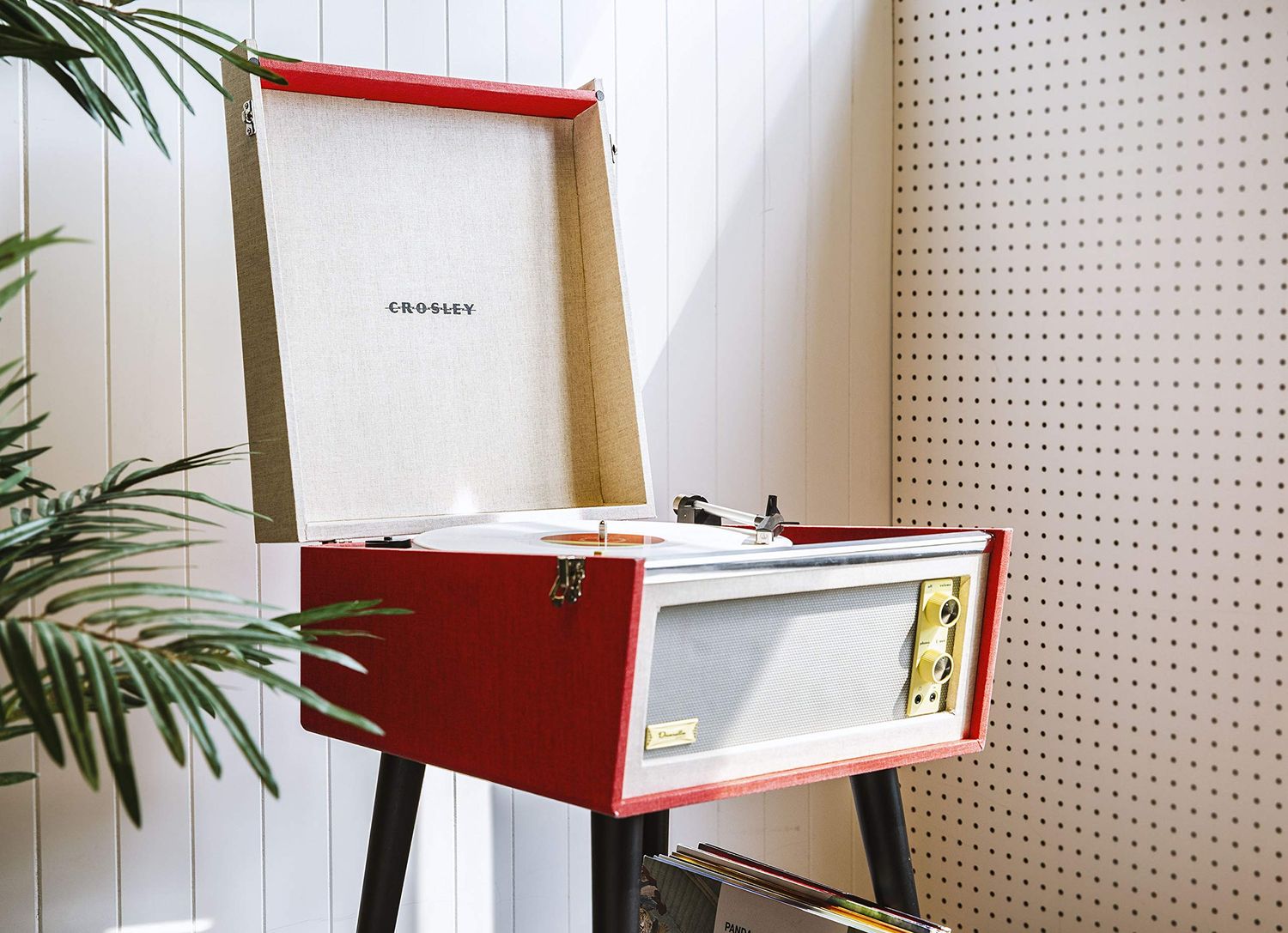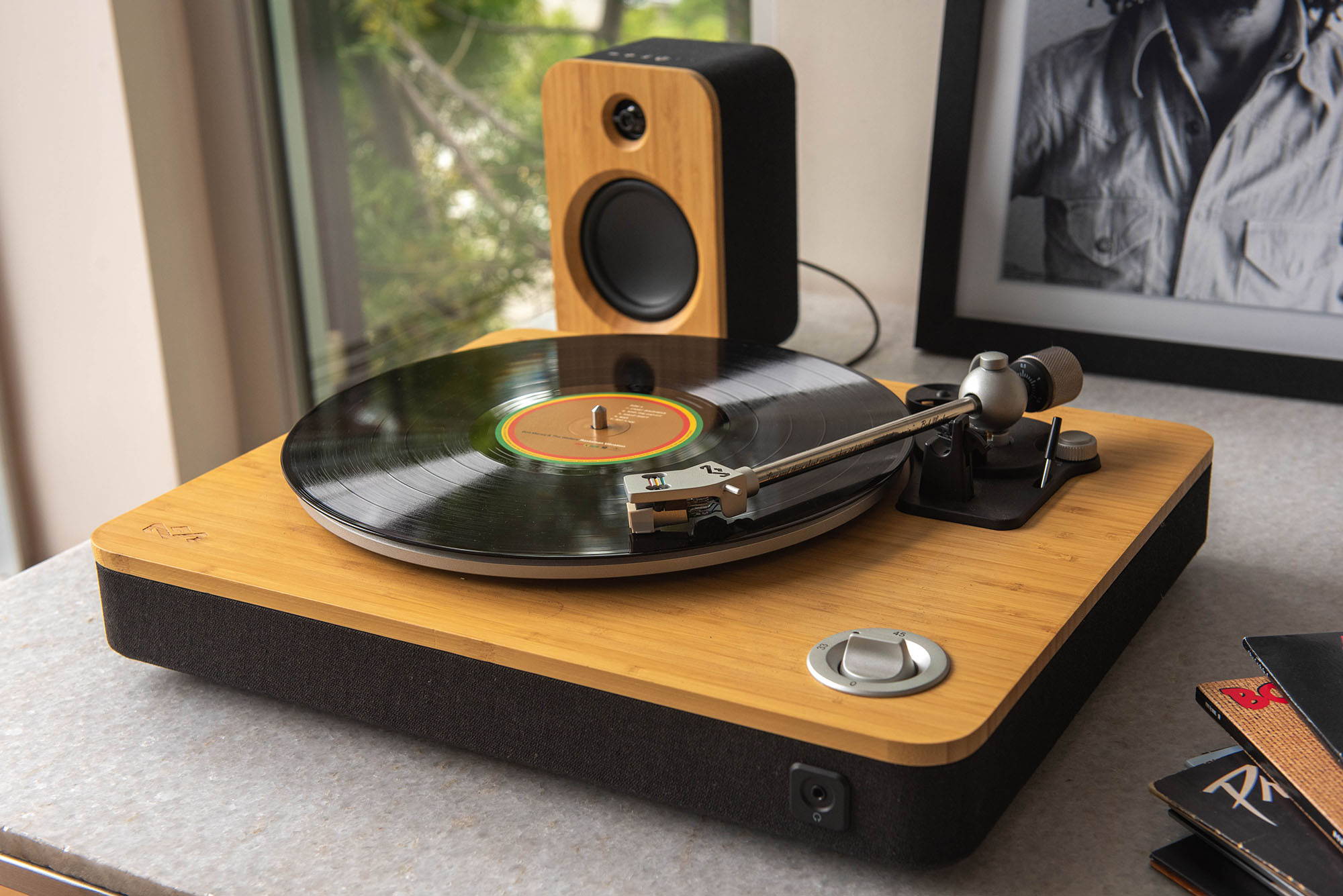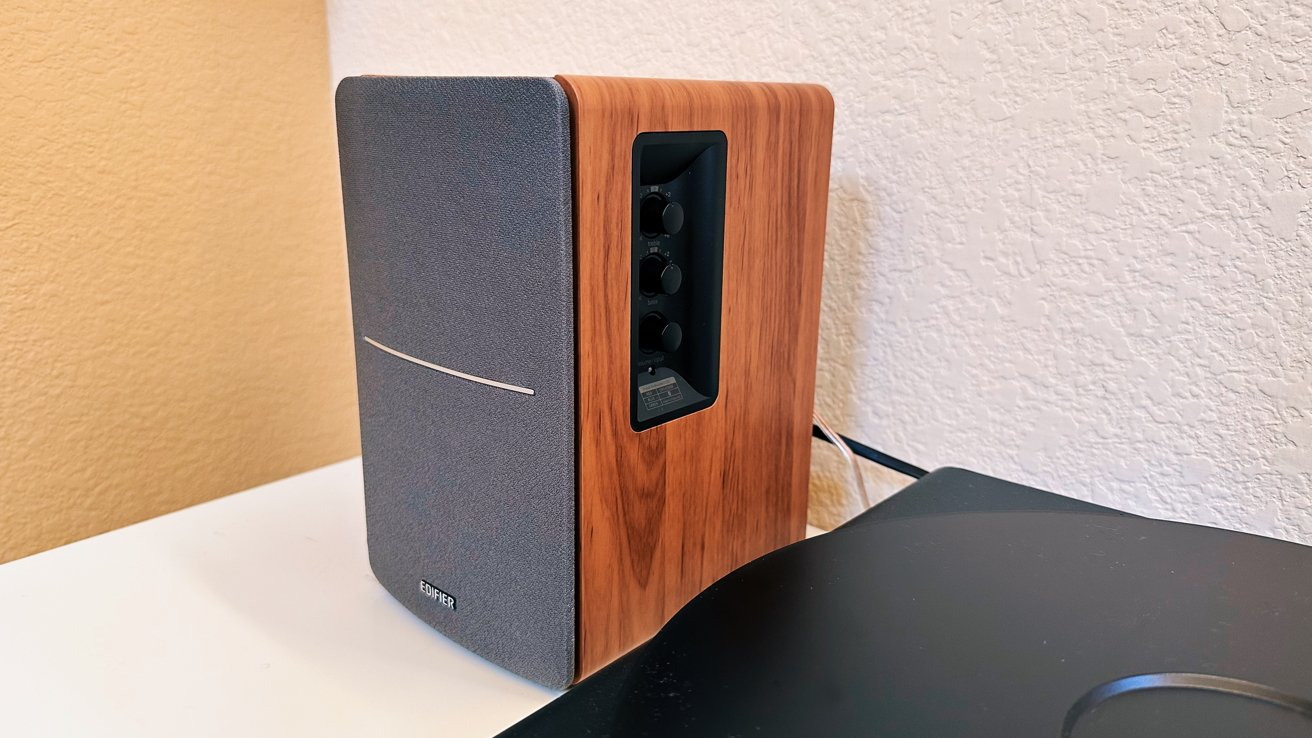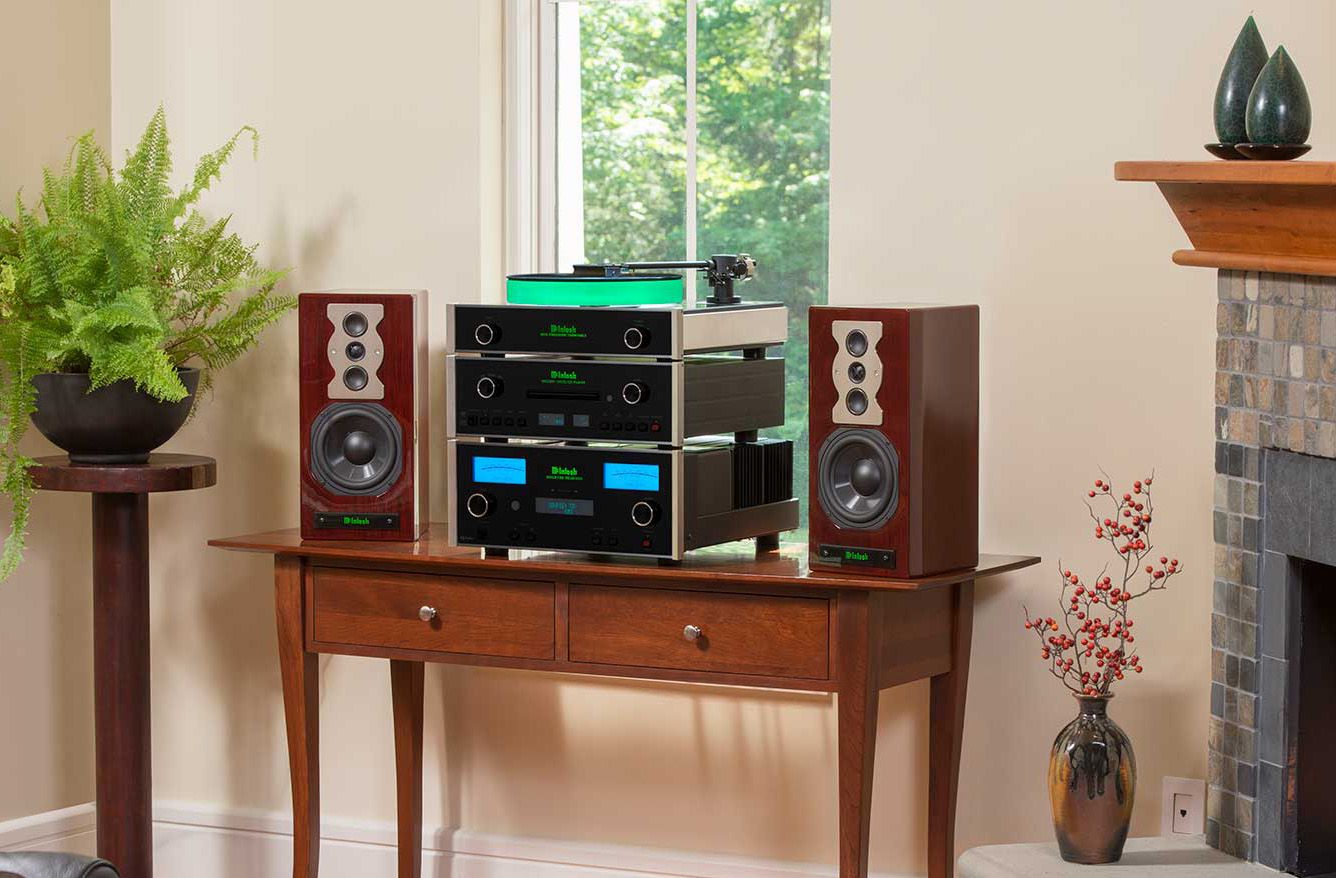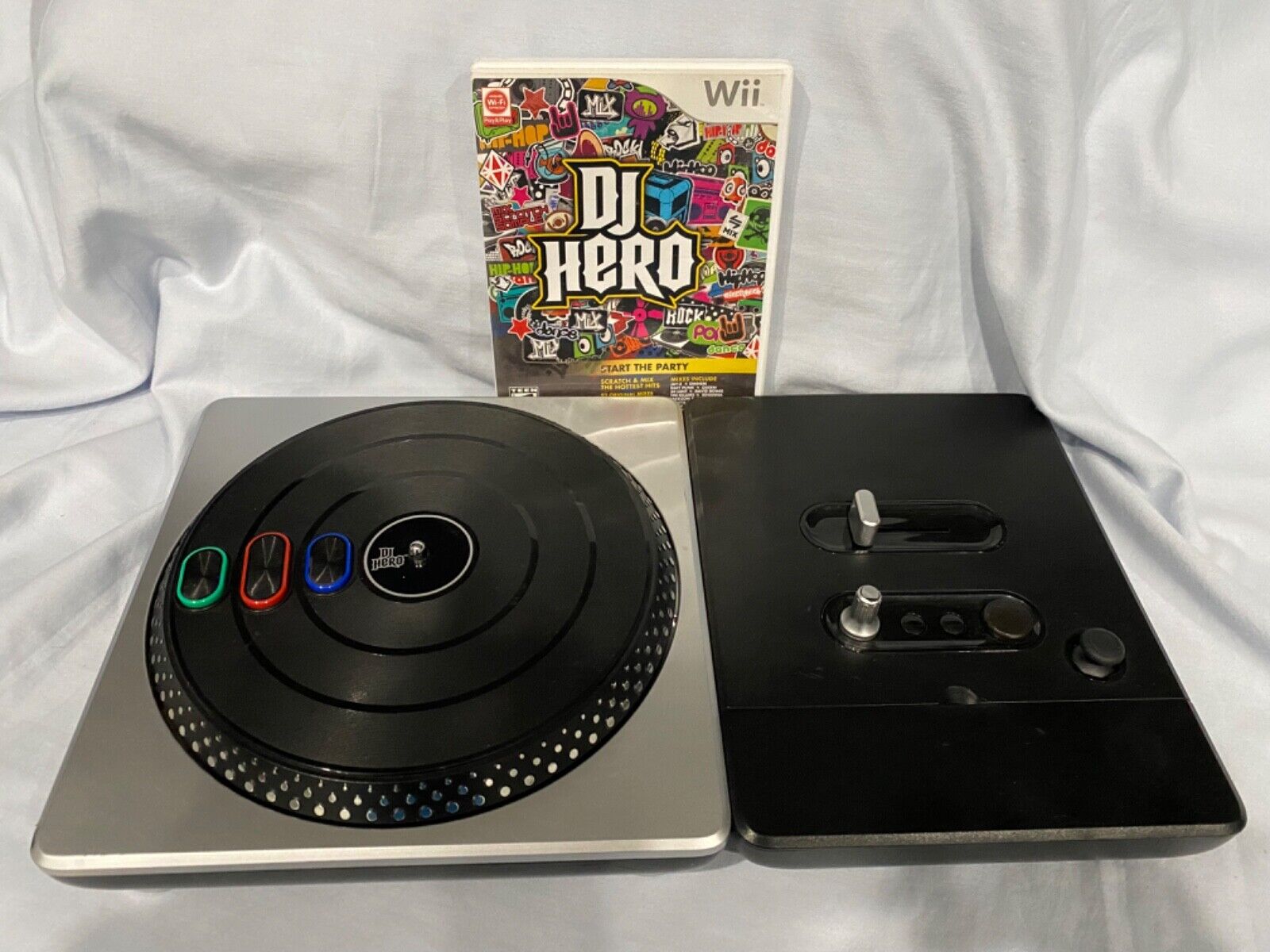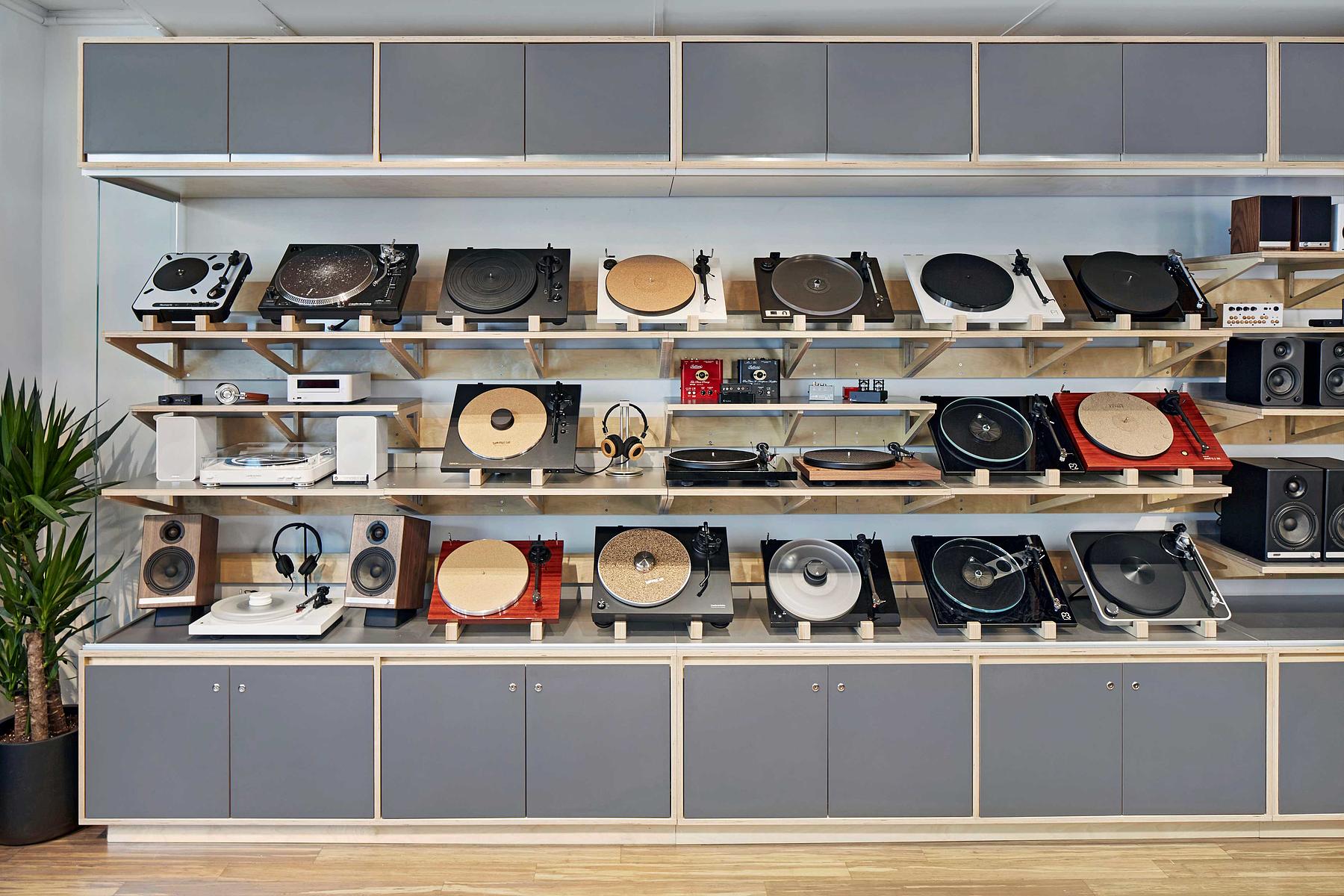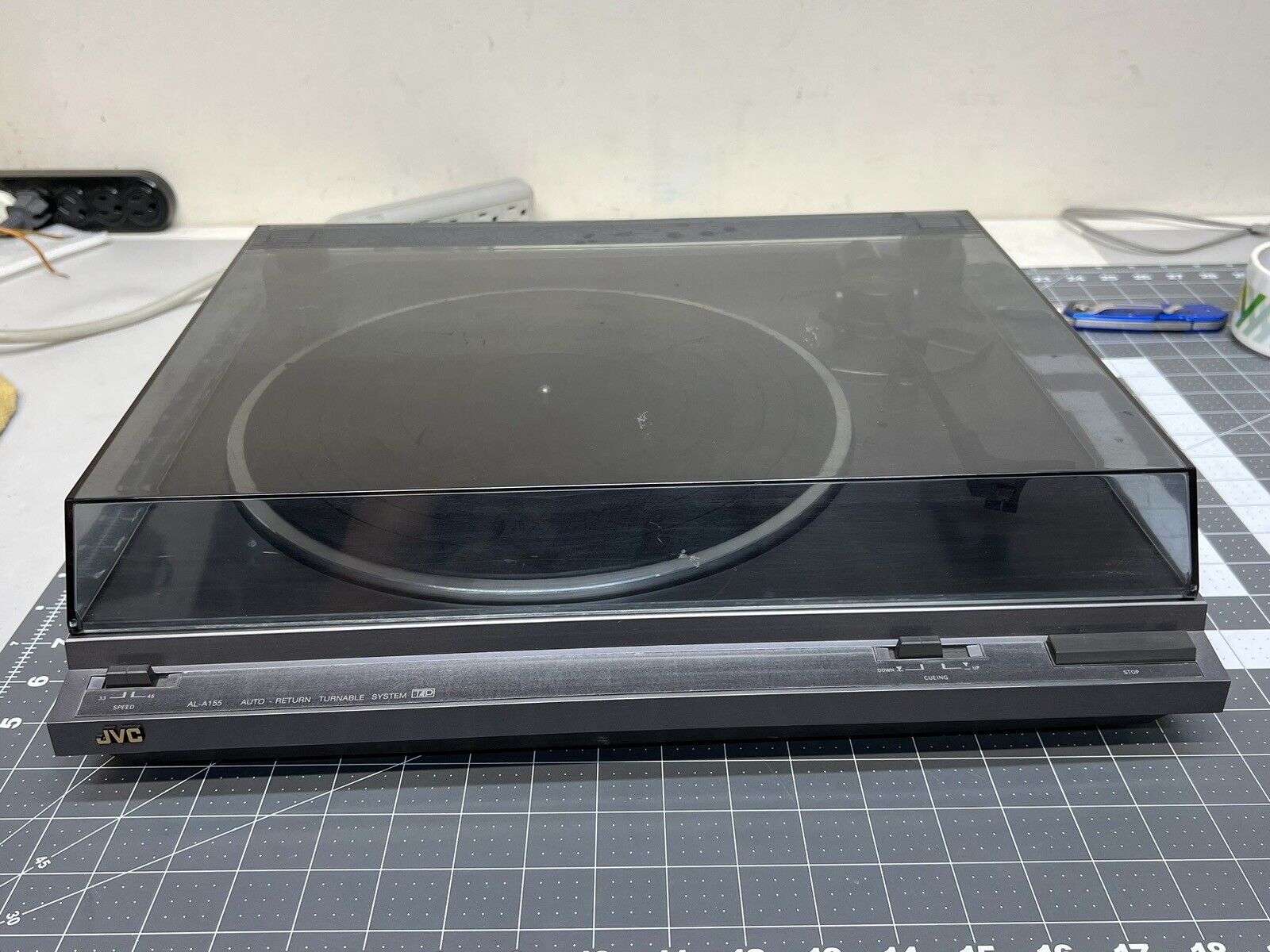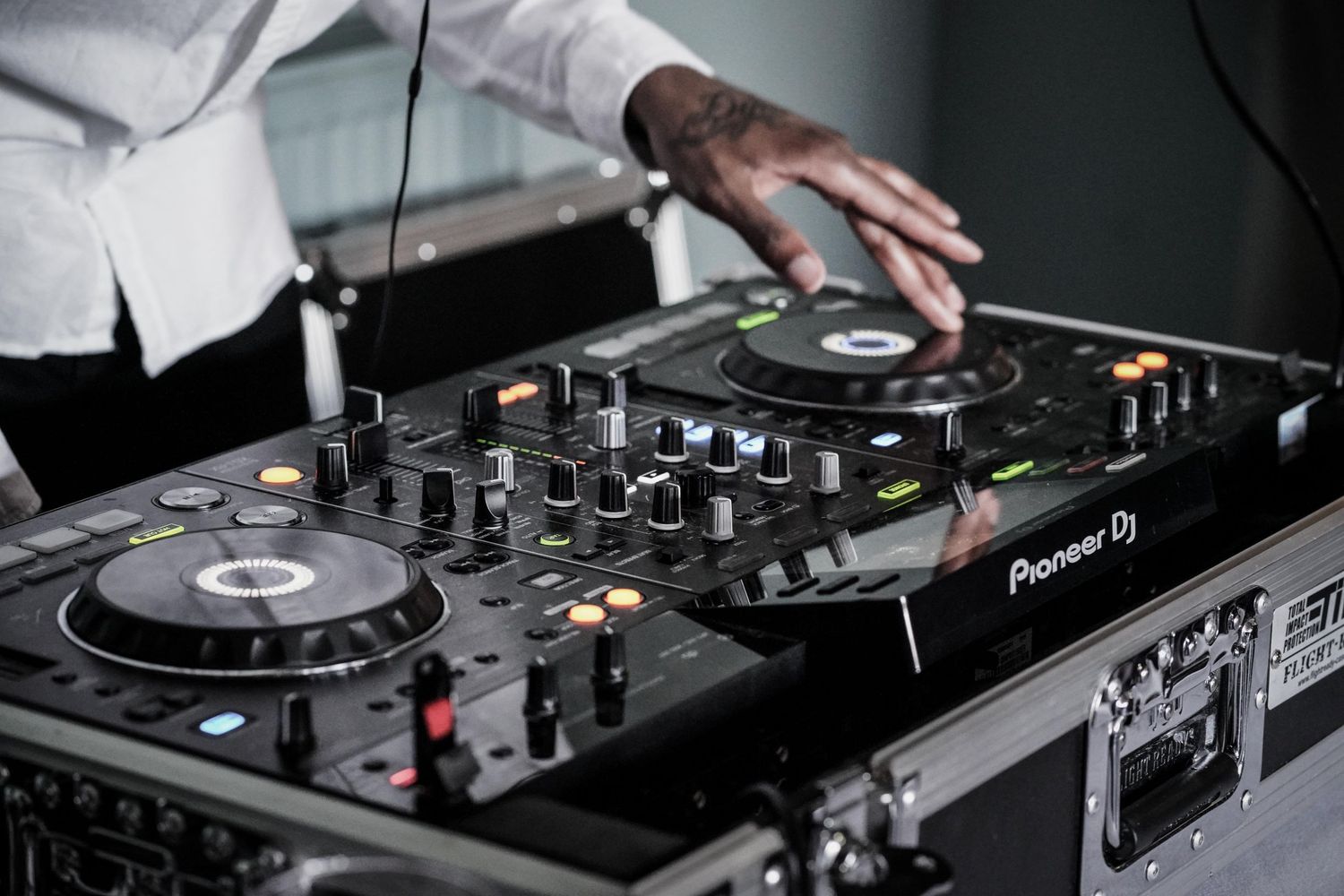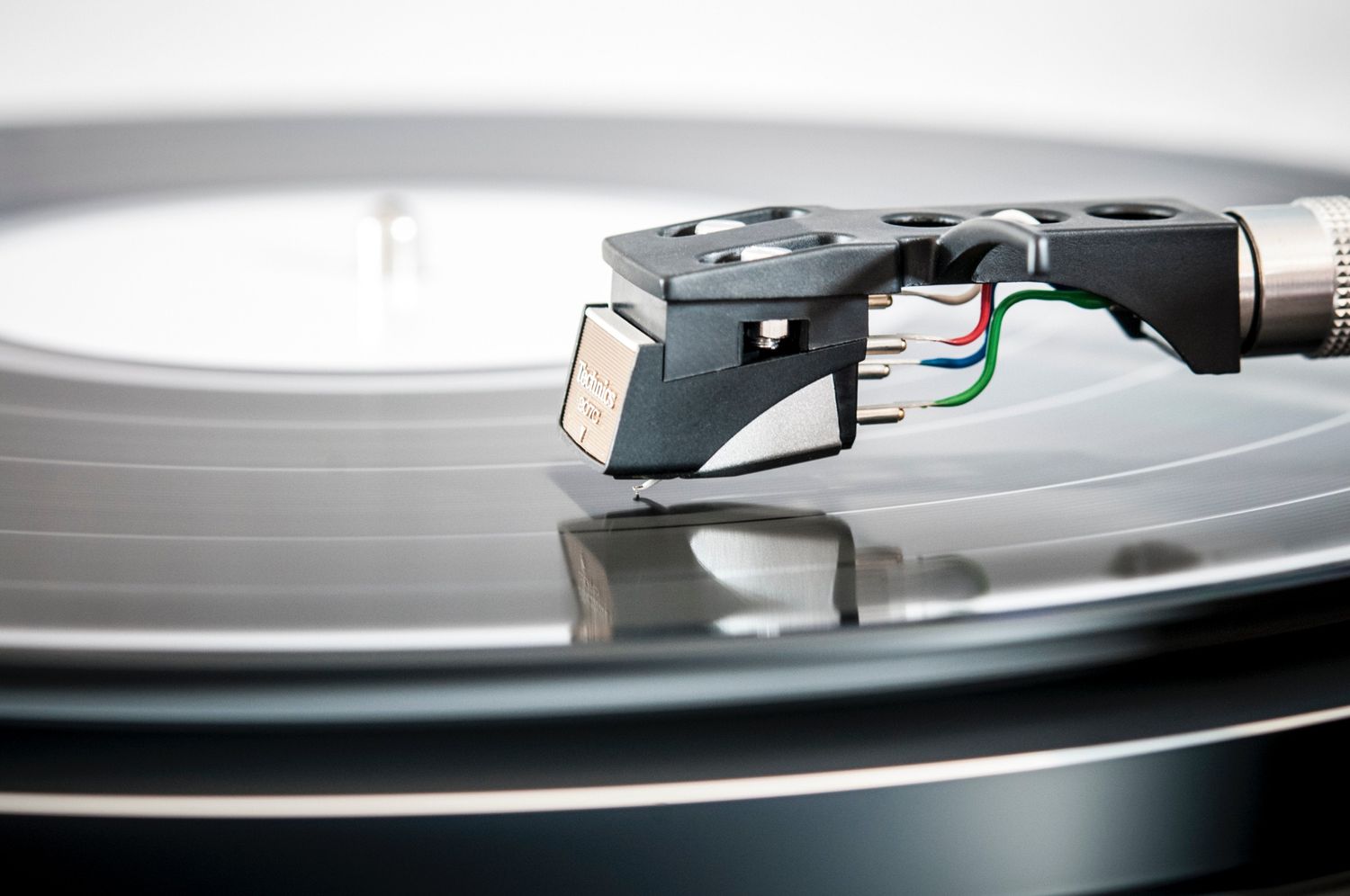Home>Devices & Equipment>Turntable>What Speakers To Buy For Turntable
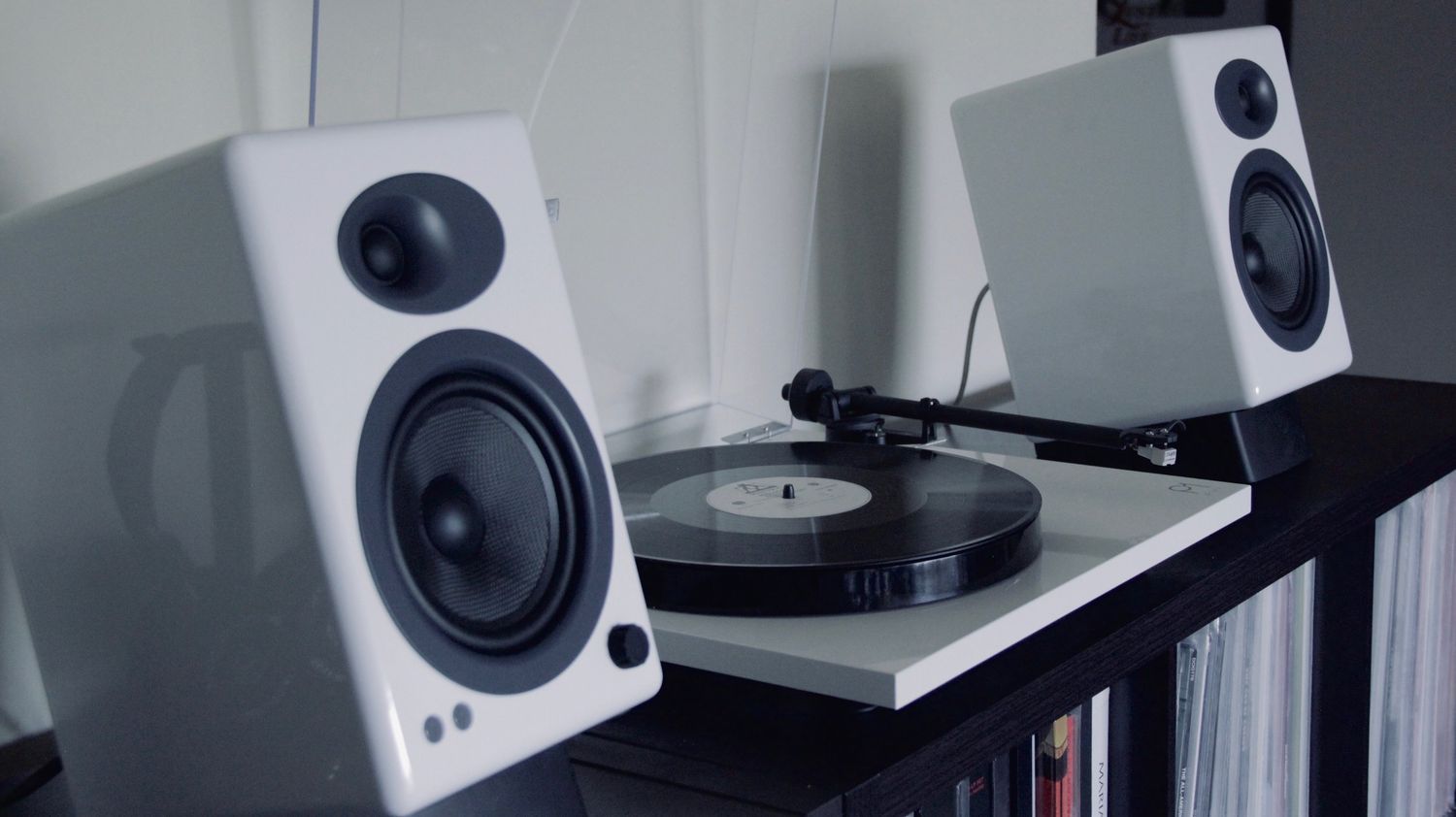

Turntable
What Speakers To Buy For Turntable
Modified: January 22, 2024
Looking for the perfect speakers for your turntable? Discover our top recommendations for turntable speakers and enhance your audio experience.
(Many of the links in this article redirect to a specific reviewed product. Your purchase of these products through affiliate links helps to generate commission for AudioLover.com, at no extra cost. Learn more)
Table of Contents
Introduction
When it comes to enjoying music on your turntable, having the right speakers makes all the difference. A high-quality set of speakers can bring out the richness and depth of sound that vinyl records are known for. It can elevate your listening experience and immerse you in the music like never before.
Choosing the right speakers for your turntable can be a daunting task, especially with the myriad of options available in the market today. Factors such as room size, amplifier compatibility, and personal preferences all come into play. But fear not, as this guide will help you navigate through the various types of speakers and find the perfect fit for your turntable setup.
In this article, we will explore the different types of speakers that are suitable for turntables, including bookshelf speakers, floor-standing speakers, active speakers, passive speakers, soundbar speakers, and wireless speakers. Each type has its own unique characteristics and advantages, and understanding them will enable you to make an informed decision.
Whether you’re a vinyl enthusiast or a casual listener, having a good set of speakers will greatly enhance your enjoyment of music played on a turntable. So, let’s dive in and discover the factors to consider when buying speakers for your turntable, as well as the various options available in the market.
Factors to Consider When Buying Speakers for a Turntable
Choosing the right speakers for your turntable involves considering several key factors to ensure optimal sound quality and compatibility with your setup. Here are some factors to keep in mind:
- Room Size: The size of your room plays a significant role in determining the type and size of speakers you should consider. Larger rooms may require more powerful speakers to fill the space and provide sufficient bass response, while smaller rooms may benefit from compact bookshelf speakers.
- Amplifier Compatibility: Check the power requirements of the speakers and ensure that they are compatible with your turntable’s amplifier. The wattage rating and impedance should be a good match to ensure proper amplification and prevent distortion or damage to your equipment.
- Sound Preference: Consider your personal taste in sound. Some speakers are known for their warm and rich sound, while others may offer a more analytical or detailed sound signature. It’s crucial to listen to different speakers and determine which sound profile resonates with you the most.
- Budget: Set a realistic budget for your speaker purchase. There are speakers available at various price points, so it’s important to determine your budget range and then narrow down your options accordingly. Remember that investing in higher-quality speakers can yield better sound reproduction in the long run.
- Warranty and Support: Ensure that the speakers you choose come with a warranty and reliable customer support. This will give you peace of mind in case you encounter any issues or need assistance with your speakers in the future.
By considering these factors, you can make a well-informed decision when it comes to purchasing speakers for your turntable. Now, let’s explore some of the different types of speakers that are available and their unique characteristics.
Bookshelf Speakers
Bookshelf speakers are a popular choice for many turntable enthusiasts, especially those with limited space. These compact speakers are designed to fit on bookshelves or small stands, making them ideal for smaller rooms or setups where space is at a premium.
One of the advantages of bookshelf speakers is their versatility. They can be used in a stereo setup, or paired with a subwoofer to create a more robust and dynamic soundstage. Despite their compact size, many bookshelf speakers deliver impressive sound quality and can provide a balanced audio experience.
When selecting bookshelf speakers for your turntable, consider factors such as driver size, frequency response, and build quality. Larger drivers can typically produce more powerful bass, while a wider frequency response range ensures that you’ll hear the full range of audio frequencies with clarity.
It’s also worth noting that bookshelf speakers often require a separate amplifier or receiver to drive them. This means you’ll need to factor in the cost of an amplifier when budgeting for your setup. However, the flexibility and performance that bookshelf speakers offer make them a popular choice for many turntable enthusiasts.
Some notable bookshelf speakers for turntables include the Klipsch R-51M, ELAC Debut 2.0 B6.2, and Q Acoustics 3020i. These speakers offer excellent sound quality in compact packages, making them a perfect fit for smaller spaces.
Overall, bookshelf speakers are an excellent option for those seeking a balance between size and sound quality. With their versatility and compact design, they can enhance your turntable listening experience without compromising on performance.
Floor-standing Speakers
If you have a larger room or you’re looking for speakers that can deliver powerful, room-filling sound, floor-standing speakers are an excellent choice for your turntable setup. Also known as tower speakers, these speakers stand directly on the floor and are typically taller and larger than bookshelf speakers.
One of the primary advantages of floor-standing speakers is their ability to produce deep and impactful bass. They usually have built-in woofers that can generate low-frequency sounds with greater clarity and depth. This results in a more immersive audio experience, especially when listening to genres like rock, jazz, or electronic music that heavily relies on bass.
Another benefit of floor-standing speakers is their ability to handle higher power levels, making them suitable for larger rooms and higher-volume listening. They often have multiple drivers, including tweeters, mid-range drivers, and woofers, which work together to produce a wide frequency response and detailed sound reproduction.
When selecting floor-standing speakers, pay attention to factors such as driver configuration, sensitivity, and impedance. The driver configuration will determine the overall tonal balance and sound dispersion. Higher sensitivity means the speakers can produce more sound with less power, while the impedance should match your amplifier’s capabilities for optimal performance.
Notable floor-standing speakers for turntables include the KEF Q550, Polk Audio Signature S60, and Klipsch RP-8000F. These speakers offer exceptional sound quality, powerful bass, and a wide soundstage, making them perfect for audiophiles and those looking for a more immersive listening experience.
While floor-standing speakers do require more space compared to bookshelf speakers, they provide a significant upgrade in sound quality and performance. If you have the room and want to experience the full potential of your turntable, floor-standing speakers are definitely worth considering.
Active Speakers
Active speakers, also known as powered speakers, are a convenient and all-in-one solution for those seeking simplicity and ease of use in their turntable setup. Unlike traditional speakers that require a separate amplifier or receiver, active speakers have a built-in amplifier, allowing them to receive an audio signal directly from the turntable.
One of the main advantages of active speakers is their simplicity. With built-in amplification, you don’t need to worry about matching the speakers’ wattage and impedance with an external amplifier. This makes setup and installation quick and straightforward, especially for beginners or those with limited technical knowledge.
Active speakers are designed to offer a balanced and optimized sound right out of the box. The built-in amplifier is specifically tuned to work with the speaker drivers, ensuring a seamless integration and optimal performance. This eliminates the need for additional equipment and potential compatibility issues.
Furthermore, active speakers often come with additional features such as equalizers, tone controls, and Bluetooth connectivity. These features can provide more flexibility in tailoring the sound to your preferences and allow you to connect other audio sources wirelessly, enhancing the versatility of your turntable setup.
Some popular active speakers for turntables include the Audioengine A5+, Edifier R1280DB, and JBL 305P MkII. These speakers offer excellent sound quality, convenient features, and an easy setup for a hassle-free listening experience.
Active speakers are a great choice for those who value simplicity and want to minimize the number of components in their turntable setup. They offer convenience, all-in-one functionality, and often provide impressive sound quality, making them an attractive option for both beginners and seasoned enthusiasts.
Passive Speakers
Passive speakers, also known as unpowered speakers, require an external amplifier or receiver to power them. They are the traditional type of speakers that have been used for decades in various audio setups, including turntable systems. Passive speakers offer flexibility in terms of amplifier selection and customization, allowing you to tailor your sound experience to your preferences.
One of the main advantages of passive speakers is their ability to handle higher power levels. Since they rely on an external amplifier, you have more control over the power output and can choose an amplifier that matches your desired sound level and quality. This makes passive speakers an excellent option for those who prefer to have complete control over their audio setup.
Additionally, passive speakers offer a wide range of options when it comes to customization and upgrading. You can choose different amplifiers or receivers with varying features and power outputs to suit your specific needs. Furthermore, if you’re an audiophile who loves experimenting with different components, you can easily swap out speakers or amplifiers to find your preferred sound signature.
When selecting passive speakers for your turntable, pay attention to factors such as driver size, impedance, and sensitivity. Larger drivers can produce more powerful sound, while impedance should match your amplifier to ensure proper compatibility. Sensitivity indicates how efficiently the speakers convert power into sound, affecting the overall loudness and clarity.
Popular passive speakers for turntables include the Klipsch RP-600M, ELAC Uni-fi UB5, and KEF LS50. These speakers offer exceptional sound quality, durability, and the ability to customize your setup to your liking.
Passive speakers offer flexibility, customization options, and the ability to fine-tune your audio setup. If you enjoy tinkering with different components and desire precise control over your sound experience, passive speakers may be the perfect choice for your turntable system.
Soundbar Speakers
Soundbar speakers have gained popularity in recent years due to their convenience and space-saving design. While primarily associated with home theater setups, soundbars can also be a viable option for enhancing your turntable listening experience.
Soundbars are long, rectangular speakers that typically consist of several speakers housed in a single unit. They are designed to reproduce a wide range of audio frequencies, including dialogue, music, and subtle sound effects, often utilizing virtual surround sound technology.
One of the main advantages of soundbar speakers is their simplicity and ease of setup. With just a single unit, you can achieve an improved audio experience without the need for multiple speakers or complex wiring. Soundbars often come with their own built-in amplifiers, making them a self-contained solution.
Moreover, soundbars are designed to provide a more immersive audio experience, with some models featuring dedicated subwoofers or virtual surround sound technology. This can enhance the depth and clarity of the sound produced by your turntable, making it feel more like a live performance or a cinematic experience.
While soundbars may not deliver the same level of audio performance as dedicated stereo speakers, they offer a convenient option for those with limited space or who prefer a sleek, minimalist setup. Many soundbars also come with additional features like Bluetooth connectivity or HDMI inputs, allowing you to connect your turntable and other audio sources seamlessly.
When choosing a soundbar for your turntable, consider factors such as sound quality, connectivity options, and the size of your room. Look for soundbars that have good frequency response and clear audio reproduction. Additionally, ensure that the soundbar has the necessary input options to connect your turntable and other devices.
Notable soundbar options for turntables include the Sonos Beam, Yamaha YAS-207, and Bose Soundbar 700. These soundbars offer excellent sound quality, sleek designs, and convenient features to enhance your turntable listening experience.
Soundbars provide a compact, all-in-one solution for enhancing your turntable’s audio performance. They offer simplicity and convenience without sacrificing sound quality, making them an attractive option for those seeking a stylish and space-saving setup.
Wireless Speakers
Wireless speakers have revolutionized the way we enjoy music, offering flexibility and convenience in our audio setups. These speakers connect to your turntable or other audio sources without the need for physical cables, providing a seamless and clutter-free listening experience.
One of the primary advantages of wireless speakers is their versatility. They allow you to place the speakers anywhere in the room without being constrained by the length of wires. This means you can create a more immersive listening experience by positioning the speakers in optimal locations for the best sound dispersion.
Moreover, wireless speakers often come with additional features such as Bluetooth or Wi-Fi connectivity, allowing you to stream music directly from your mobile devices or connect to online streaming services. This means you can easily switch between listening to vinyl records and playing music from your digital library or online platforms.
Wireless speakers come in various forms, including bookshelf speakers, floor-standing speakers, and portable speakers. This gives you options that can cater to different room sizes and listening preferences. Some wireless speakers even offer multi-room capabilities, allowing you to create a synchronized audio system throughout your home.
When considering wireless speakers for your turntable, pay attention to factors such as sound quality, connectivity options, and battery life (for portable speakers). Look for speakers with good audio performance, clear sound reproduction, and stable wireless connectivity to ensure a seamless listening experience.
Popular options for wireless speakers include the Sonos One, Bose SoundTouch 20, and Marshall Stanmore II. These speakers offer excellent sound quality, wireless connectivity, and compatibility with a wide variety of devices.
Wireless speakers provide a convenient and flexible option for upgrading your turntable setup. They offer the freedom to place speakers wherever you desire, stream music wirelessly, and cater to different room sizes and preferences. With wireless speakers, you can enjoy the benefits of modern technology without compromising on audio quality.
Conclusion
Choosing the right speakers for your turntable can greatly enhance your listening experience and bring your vinyl records to life. Consider factors such as room size, amplifier compatibility, sound preference, budget, and warranty/support when making your decision.
Bookshelf speakers are a popular choice, especially for those with limited space. They offer versatility and can provide impressive sound quality despite their compact size.
Floor-standing speakers are ideal for larger rooms or for those seeking powerful, room-filling sound. They often have built-in woofers that deliver deep and impactful bass for a more immersive listening experience.
Active speakers provide a convenient and all-in-one solution, eliminating the need for a separate amplifier. They offer simplicity, built-in amplification, and often come with additional features like tone controls and Bluetooth connectivity.
Passive speakers offer flexibility and customization options, allowing you to select different amplifiers and tailor your sound experience to your preferences. They can handle higher power levels and provide a wide range of upgrade possibilities.
Soundbar speakers offer a space-saving design and convenience, making them a viable option for enhancing your turntable setup. They often come with built-in amplifiers, virtual surround sound technology, and additional features like Bluetooth connectivity.
Wireless speakers provide flexibility and versatility, allowing you to place them anywhere in the room without the constraints of cables. They offer convenience, wireless connectivity options, and the ability to stream music from various sources.
Ultimately, the best speakers for your turntable will depend on your specific needs, preferences, and budget. Take the time to consider the factors mentioned in this guide and listen to different speakers before making your decision.
Whether you choose bookshelf speakers, floor-standing speakers, active speakers, passive speakers, soundbars, or wireless speakers, the right choice will enhance your turntable experience, immersing you in the richness of vinyl sound and bringing your favorite music to life.

